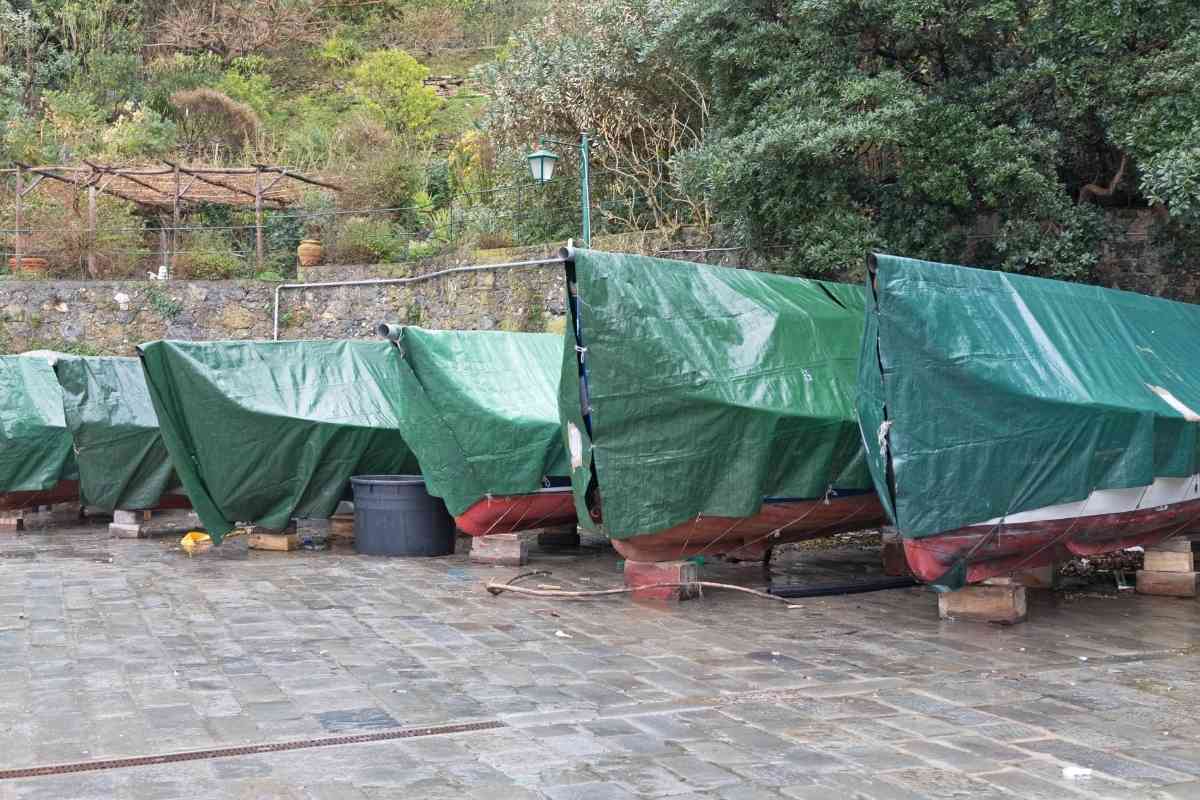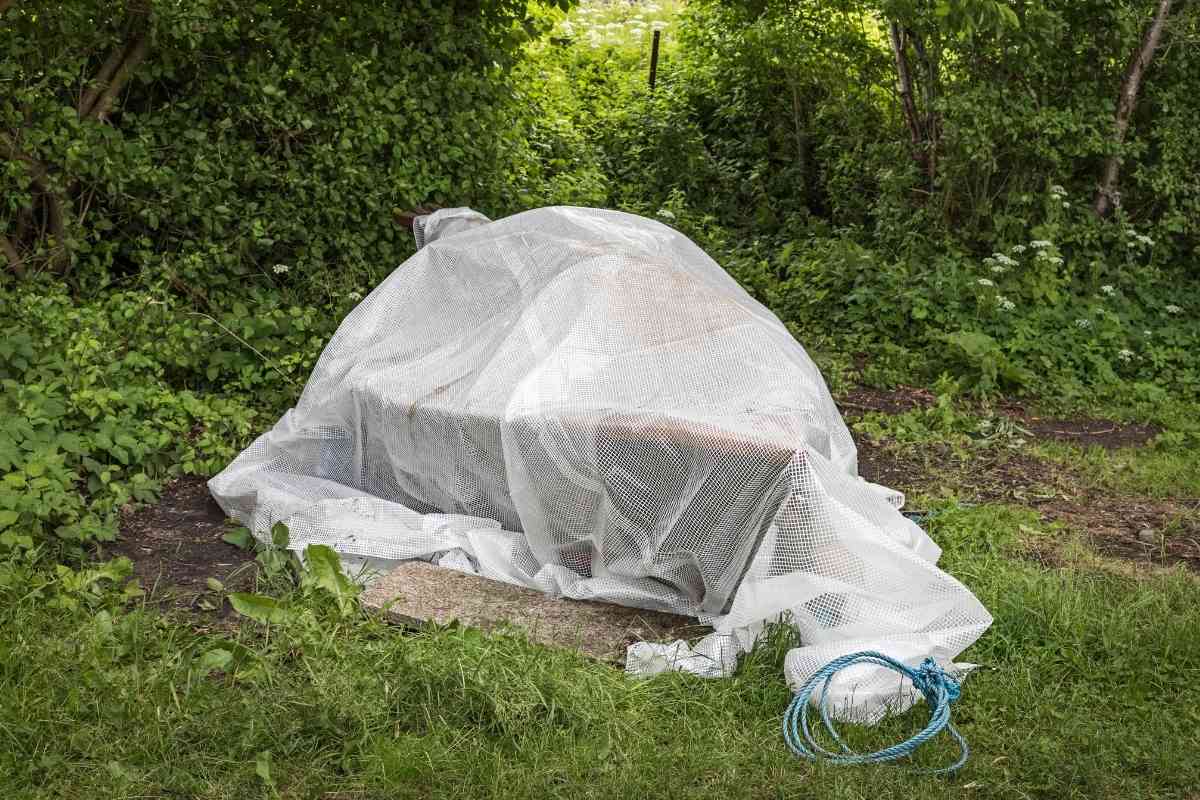Do I Need To Winterize My Boat If I Keep It In The Garage?
Apart from the weather turning chilly, the sun not seeming so inviting, and fish stopping biting, one regrettable facet of summer and fall coming to a close is the need to winterize your boat. Many boat owners have tried to justify not winterizing their boats because they keep them in an enclosed space over the colder freezing months.

Table of Contents
- Do I Need to Winterize My Boat if I Keep It in the Garage?
- What Does Winterizing Entail?
- Why Does Winterizing Matter?
- Winterizing Needs
- Why Winterizing a Garaged Boat Matters
- Final Thoughts
Do I Need to Winterize My Boat if I Keep It in the Garage?
Even if you keep your boat in a garage, barn, shed, or other enclosed space, you should still winterize a boat. Winterizing your garage-kept boat protects it from pests, intruders and mold, and mildew-causing humidity that are still present even in a garage.
What Does Winterizing Entail?
In the simplest terms, winterizing your boat involves weather and varmint-proofing it so it will be in seaworthy shape come spring. A well-cared-for boat will be in better shape when hauled out in spring than at the end of the prior boating season.
Much of what you need to do to winterize your boat depends on what type of boat you have.
If you have a pontoon or bass boat, what you do to winterize your boat will be more complex than if you are winterizing a rowboat or canoe.
If your boat spends most of its time in saltwater, apart from your regular maintenance, you will have a lot of inspection and maintenance to perform so that your boat does not corrode over the winter.
Even if you are not pulling your boat out of the water because you live in a warmer climate, you should still perform annual maintenance. Do this before or over the winter to ensure your boat is not vulnerable to the elements, water, or animals that might want to take up residence.
Why Does Winterizing Matter?
Whether you haul your boat out of the water when done using it or leave it in the water all season, your boat takes a beating. Because of that, winterizing is as much restoration as prepping the boat for the winter.
Those are the two main reasons you want to winterize your boat or at least put it through an end-of-season tune-up.
Wear and Tear

Propellers get chipped. The fuel filter or line needs flushing and cleaning. The deck is filthy because of the elements fish bring hauled on board and the feet and shoes of visitors. Someone left some food that has gone rancid and smells or spilled a drink on the seats; now they are sticky and dirty.
Those are just a few obvious maintenance things you must address to keep your boat in good shape. Here is a partial list of some of the more complex stuff:
- Fuel gets fouled by water and needs replacing
- Mildew and mold take hold in the darker, wetter parts of the boat
- Decking is perpetually damp because of the elements
- Some water-oriented animal has left droppings on the deck or under a seat
While you kept up with most of these issues during the season, inevitably, some stuff got overlooked, and the end of the season is a great chance to address them. If you put your boat in an enclosure for the winter, you want to address all of the above so it does not get worse while the boat is inactive.
Routine Maintenance
The possible ways wear-and-tear can affect a boat’s performance, look and feel are almost endless.
- Electrical work goes haywire because of exposure to water
- Damage, such as a slow leak in a pontoon, needs addressing
- Engine fittings, hinges, etc., need greasing
- Cushions and flotation devices need cleaning
- The battery needs to be stored in a clean, dry space to prevent corrosion
- The boat needs washing
These tasks are just a few routine maintenance tasks that you should perform on your boat at least once a year. If you store your boat in a garage or barn, you can partially winterize and work on maintenance issues before mothballing your boat for the duration of the cold weather.
Winterizing Needs
Your boat needs tender loving care year-round, but when taken out multiple times, brought in at the end of a holiday, weekend, or vacation, and generally neglected until the next time it gets used, that tender loving care gets put off.
While addressing certain issues when they become a problem during the season might be permissible, eventually, if you neglect them, other issues will emerge. Not cleaning the boat, for example, will lead to seats becoming moldy and dirt accumulating. Eventually, if you ignore cleaning needs, you will need to replace flooring, seats, cushions, etc.
Winterizing also addresses more serious issues. Those can include draining oil or coolant from your engine, sealing and resealing windows, clearing bilges, and replacing bilge pumps. Other tasks that can benefit from winterizing are inspecting your electrical and lighting systems and washing the entire boat on the interior and exterior.
Why Winterizing a Garaged Boat Matters
Each of the items mentioned, and many more, need to be addressed, whether you leave your boat in the water year-round, store it in a marina, dry dock it, or store it in a garage or other enclosed space. Not addressing these and other issues is asking for trouble.
Winterizing your boat lets you prepare your boat for the next season while protecting it over the winter.
Rodents and Other Critters
For example, removing all food and drink is critical, not just because it will rot over the months the boat is not in use. Food and drink left out or stored on a boat attract rodents and other animals. Mice and rats, for example, love to nest over the winter in boats because they protect them from the weather, people rarely visit, and there are hundreds of places to nest.
Add to that some food, and you have just given rats, mice, or muskrats ample reason to take up residence.
Intruders
Not every unwanted guest is a varmint, or at least not a four-legged kind of varmint. Winterizing your boat, regardless of where you store it, lets you protect the equipment you leave on it, not just from the elements but from thieves. It is much more difficult to steal something from a boat that is wrapped tight and locked than it is from one left exposed and open.
Environmental Protection
From humidity and condesnation to people tempted to climb on an open boat, a boat in a garage that is winterized stands a much better chance of emerging unscathed.
Final Thoughts
Even if you store it in a garage, when you winterize a boat, it at least lets you address issues you know about and discover issues you were not aware existed. It also protects your boat from two and four-legged critters. Best of all, you can rest assured that when you break it out in the spring, your boat will be as ready to tackle the water as you are.
